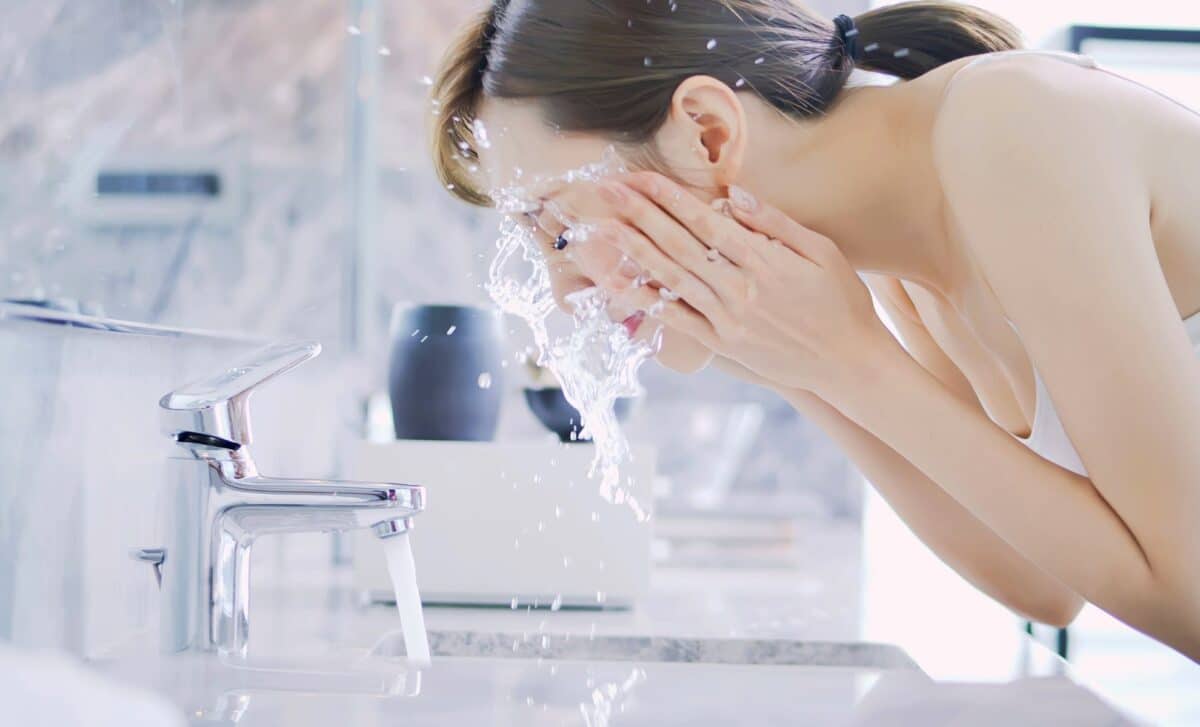Tap water is something we all use daily: for drinking, cooking, washing, or even relaxing in a hot bath. But did you know that it can also hide invisible dangers that, in some cases, can be deadly? One of these dangers is an amoeba, Naegleria fowleri, commonly known as the “brain-eating amoeba.” Yes, you read that right – this tiny microorganism can cause severe diseases.
A story that sends chills
Recently, a tragic case from Texas highlighted the risks associated with using non-boiled tap water for sinus rinsing. A 71-year-old woman passed away after using tap water to flush her sinuses. She developed a life-threatening infection called primary amoebic meningoencephalitis, caused by Naegleria fowleri.
Less than four days after using tap water to rinse her sinuses, she began experiencing severe symptoms, including fever and altered behavior, and sadly passed away eight days later. Laboratory tests revealed the presence of this amoeba in her cerebrospinal fluid (the fluid surrounding your brain and spinal cord).
The cause of this infection was unboiled water from a reservoir in her camper that had been refilled three months earlier. The fact that she used water from a vehicle’s water reservoir, rather than from an open outdoor water source, makes this incident even more surprising. The infection likely originated from the municipal water system connected to the camper.
The No-Fail Oil Stain Removal Method You’ve Been Missing—It’s in Your Pantry!
Another alarming case
Another tragic incident occurred in Arkansas, where a 16-month-old baby passed away after playing in a poorly maintained kiddie pool. The pool had not been properly disinfected, and the water became a breeding ground for this deadly amoeba.
The baby showed signs of illness on September 1, 2023, but it was only a few days later that tests revealed the presence of amoeba microorganisms in the child’s system. The family reported that the child had played in the pool on August 26 and 27. Unfortunately, the child passed away shortly thereafter.
Why should you worry about tap water?
While these two tragic stories have caught attention, it’s essential to understand why tap water, especially if not properly treated, can pose a danger. Naegleria fowleri is an amoeba that lives in warm freshwater environments such as lakes, rivers, and, in rare cases, poorly maintained municipal water systems. This amoeba enters the human body through the nasal passages when a person swims or rinses their sinuses with contaminated water.
Infection is relatively rare, but it can be fatal if not treated quickly. Once the amoeba reaches the brain, it causes severe inflammation that can lead to seizures, loss of consciousness, and even death.
What can you do to avoid the risks?
Fortunately, there are simple ways to avoid this kind of situation. If you use tap water to rinse your sinuses, for example, it’s crucial to only use boiled (and then cooled), distilled, or sterilized water. This simple precaution can save you from many headaches and, more importantly, serious health complications. It’s not difficult—just boil the water and let it cool before use.
As for pools, especially those for children, make sure they are properly maintained and disinfected. Stagnant water is an ideal breeding ground for bacteria and other microorganisms, so be sure everything is clean before letting kids play in it.
Some tips for safe water activities
Water activities are a great way to stay active, have fun, and relax. Whether you’re swimming, playing in a kiddie pool, or rinsing your sinuses, it’s essential to ensure that the water you’re using is safe.
- Check the water quality: Whether it’s for a bath or an activity in a pool, make sure the water is clean and properly disinfected.
- Use boiled water for your sinuses: A simple precaution to prevent infections.
- Avoid questionable water spaces: Whether it’s a river, lake, or poorly maintained pool, it’s better to be safe than sorry.
- Pay attention to pool maintenance: Especially for kiddie pools, as they are often less carefully maintained and more likely to harbor infections.
By following these few simple precautions, you can significantly reduce the risks. Water, just like food or air, should be a source of well-being, not a danger to your health.







